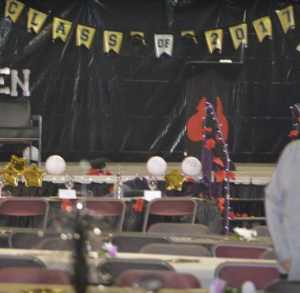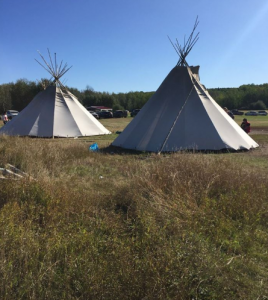Educators value the involvement and support of parents, guardians, families and communities in schools.
In 2017 and 2018 I served on the grad planning committee for JBS Sewepagaham High School, in which capacity I was part of regular planning meetings with students and family members thereof. I was one of several individuals responsible for organizing and coordinating fundraisers and grad events, and for arranging family involvement in same, as well as collaborating with family members to ensure that students fulfilled the academic requirements to graduate on schedule.
 While at the same school I also participated in leading students around the annual cultural village dedicated to traditional Cree culture, and when possible lent a helping hand in the logistics of the event. During my time at the school, I found that a big part of involving families and the community in the school is the teacher making themselves part of the community. Not intruding into students’ lives by socializing with parents, but by attending community events and taking an interest in local developments–just taking a visible interest made a big difference, a feeling that was frequently confirmed in conversations with stakeholders.
While at the same school I also participated in leading students around the annual cultural village dedicated to traditional Cree culture, and when possible lent a helping hand in the logistics of the event. During my time at the school, I found that a big part of involving families and the community in the school is the teacher making themselves part of the community. Not intruding into students’ lives by socializing with parents, but by attending community events and taking an interest in local developments–just taking a visible interest made a big difference, a feeling that was frequently confirmed in conversations with stakeholders.
 As a teacher, I also strive to keep families apprised of significant developments to do with their learners, both positive and negative–families are more willing to hear about and take steps to assist a struggling student after a difficult phone call if they also hear positive updates from the school. Families are the most powerful resource available to a teacher, and keeping them informed and getting them onboard are essential tasks for any teacher who aspires to see each and every one of their students succeed.
As a teacher, I also strive to keep families apprised of significant developments to do with their learners, both positive and negative–families are more willing to hear about and take steps to assist a struggling student after a difficult phone call if they also hear positive updates from the school. Families are the most powerful resource available to a teacher, and keeping them informed and getting them onboard are essential tasks for any teacher who aspires to see each and every one of their students succeed.
